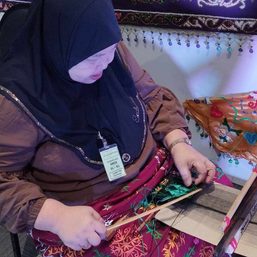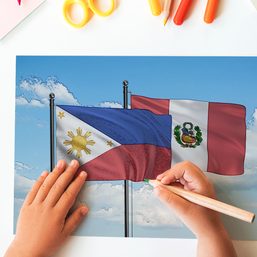SUMMARY
This is AI generated summarization, which may have errors. For context, always refer to the full article.
![[OPINION] Why the Society of Filipino Archivists for Film should make itself relevant again](https://www.rappler.com/tachyon/2023/09/sofia-september-22-2023.jpg)
2023 marks the 30th anniversary of the Society of Filipino Archivists for Film or SOFIA, a non-stock, non-profit NGO formed in 1993 by the late film critic, film historian, and Manunuri member Agustin “Hammy” Sotto. Composed of individuals from varying backgrounds – from trained archivists to film enthusiasts – the group, as its org profile states, is “brought together by a singular cause and purpose: to preserve our country’s cinematic heritage and to support the establishment of a national film archive.”
I personally served as a member and later, board trustee of SOFIA for 10 years on a purely volunteer basis until my departure and retirement some years ago. This gives me, therefore, both an insider and outsider perspective on the organization and what it can and should do if it must continue to be a relevant organization in the film archiving advocacy space, more so in a country like the Philippines with its dismal track record of preserving its rich audiovisual heritage.
A promising start
It was in 2007 when I was invited to join SOFIA by the late Alexis Tioseco, film critic, programmer, and writer. At that time, SOFIA had newly reconstituted and reorganized itself and was recruiting new volunteer members. Among those who heeded the call were filmmakers Lav Diaz (whose film Ang Babeng Humayo, would win best picture in the 2016 Venice Film Festival), Raya Martin, and Sherad Anthony Sanchez – all stalwarts of the indie filmmaking scene. It was indeed a promising start and, driven by a renewed and reinvigorated purpose, everyone was raring to do their share (sans any remuneration) in pushing for SOFIA’s call which was to advocate for the establishment of a state-supported National Audio Visual Archive.
But it would take three more years in 2010 and onwards when SOFIA, under the leadership of acclaimed screenwriter and academic Clodualdo “Doy” del Mundo and the active participation of the likes of film programmer Teddy Co, would be at its busiest and most visible mounting in succession a series of free film screenings held at the Cultural Center of the Philippines’ Tanghalang Manuel Conde: from Overlooked Films, Underrated Filmmakers; National Artist for Cinema: Gerado de Leon @100; and Manuel Conde @100; to its most recent Reflexive Cinema in 2017.
Drawing film enthusiasts of all stripes, not to mention the presence of directors and stars, in the process garnering extensive media and online coverage, SOFIA, the cause of film archiving, and the value of preserving our audio visual heritage slowly but surely began to reach the national consciousness.
Opposing forces and a slow decline in relevance
With the success of its film screening projects came countervailing events – both within and beyond the organization’s control – that caused SOFIA to lose its compass and, in the process, its standing.
The election of Benigno “Noynoy” Aquino III as President brought with it fresh leadership at the Film Development Council of the Philippines (FDCP), which under Republic Act No. 9167 has the mandate to “ensure the establishment of a film archive in order to conserve and protect film negatives and/or prints as part of the nation’s historical, cultural, and artistic heritage.” With Briccio G. Santos as Chairman, the government film council announced that it would, for the first time since its inception, pursue its film archiving mandate in earnest.
And thus the National Film Archives of the Philippines or NFAP (now Philippine Film Archives) was born. While not yet fully institutionalized even up to today, the NFAP wasted no time in gathering as much material (film reels, tapes, etc.) from various state and private collections, a lot of them in various stages of deterioration, to be housed in a centralized facility.
SOFIA played a part in the beginnings of NFAP, where I in fact worked for two years during its incipient stages, but due to a variety of factors – not the least of which was its failure to doggedly fulfill its role as watchdog – had been unceremoniously pushed to the sidelines during what was a rather contentious period. It did not help either that SOFIA at that point was also hoping to seek funding support from the FDCP for its programs, putting it at odds with its supposed independent stance.
And then came Sagip Pelikula in 2011, ABS-CBN’s Film Restoration Program. A joint undertaking of the ABS-CBN Film Archives (which for many years was considered the only real operating film archive in the country) and Central Digital Lab, it spearheaded the digital restoration and remastering of Filipino films including Philippine Cinema classics like Ishmael Bernal’s Himala and Peque Gallaga’s Oro Plata Mata.
While, again, SOFIA rendered its full support to this undertaking (after all, the then manager of the ABS-CBN Film Archives, Mary del Pilar, eventually served as SOFIA president) this further eroded the group’s relevance, unclear of its direction and raison d’etre. And oddly and quite disappointingly, when the non-renewal of ABS-CBN’s congressional franchise during the height of the pandemic placed a bleak and uncertain future on its film archives, SOFIA’s much needed voice at such a critical time could not be heard.
Making itself relevant again at 30
Clearly, as the Society of Filipino Archivists for Film marks its momentous 30th anniversary, as they adopt the phoenix to symbolize immortality and rebirth, it must also seize the opportunity to take stock in order to regain its footing and make itself a relevant organization once more. This as a national audio visual archive, lest everyone has forgotten, has yet to be concretized by congress.
From being perennially cash-strapped and leading an almost hand-to-mouth existence, relying solely on grants to support its programs, the board of SOFIA in fulfillment of its fiduciary role must find ways to make itself sustainable, viable, and independent (seeking the Philippine Council for NGO certification to facilitate better fund-raising for an endowment would certainly help).
It should reach out and move out of its comfort zone by seeking more private partnerships beyond the CCP, the NCCA, and the FDCP. Turning to similar organizations abroad as models might be of benefit too. But lastly and most importantly, SOFIA and its members must take pause to clearly define its purpose by answering simple yet relevant questions: “What are we in existence for and where should we be headed?” – Rappler.com
As a former cultural worker, Monchito Nocon was board trustee of the Society of Filipino Archivists for Film (SOFIA) from 2008 to 2018 and served on the Cinema Committee of the National Commission for Cultural and Arts (NCCA) for two terms ending in 2016. He was also briefly connected to what was then the National Film Archives of the Philippines before moving to the private sector.
Add a comment
How does this make you feel?





There are no comments yet. Add your comment to start the conversation.